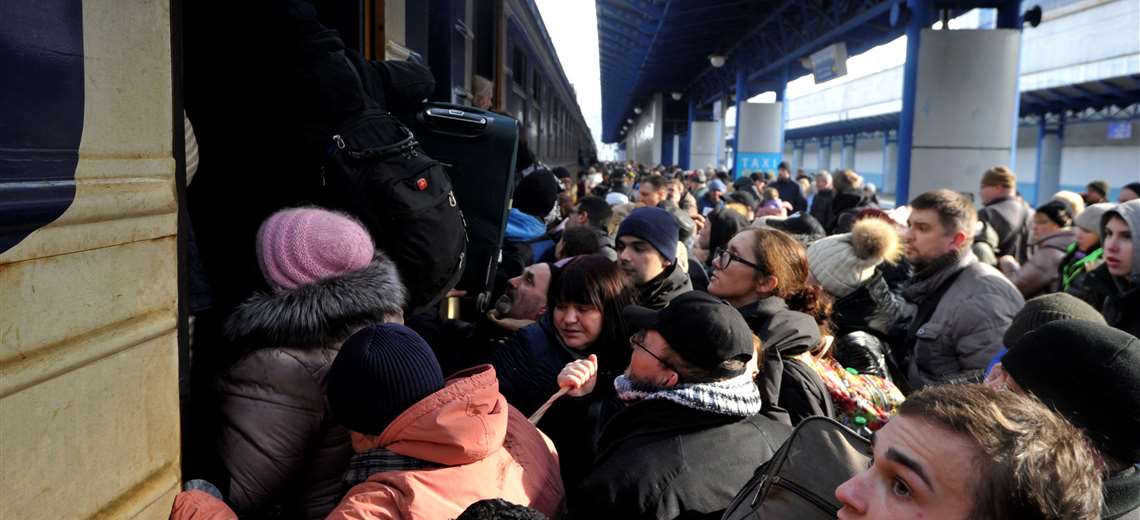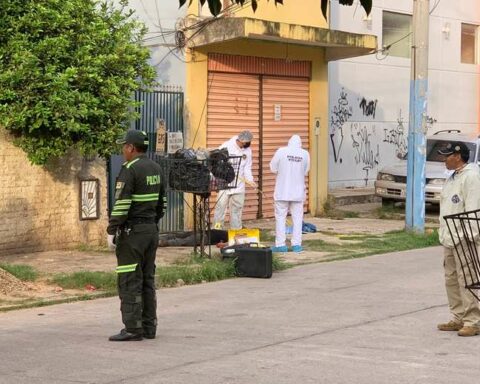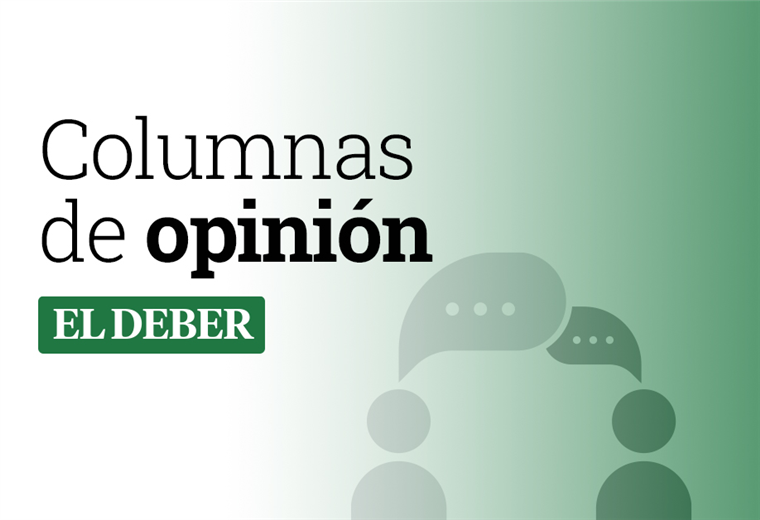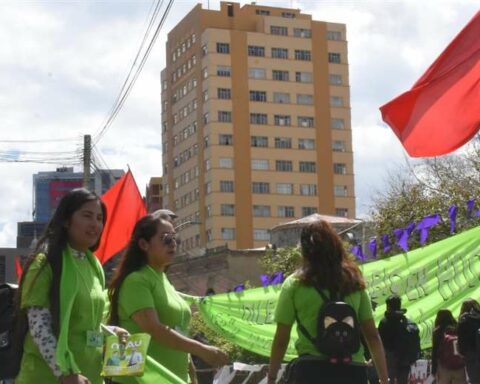Russian tanks arrived at the gates of Kiev on Thursday, in their strategy of surrounding the large cities of Ukraine, causing a mass exodus towards countries of the European Union (EU), which is preparing to receive “millions” of refugees .
The military operations continued in parallel to the first high-level negotiations between Russia and Ukraine, where the objective of a ceasefire in the conflict that President Vladimir Putin started on February 24.
The United States and its EU allies claimed that they wereThey are studying new sanctions against Russia for signs of an “escalation” of attacks against civilians.
On the ground, an AFP team saw plumes of smoke in the town of Skybyn, a few hundred meters from the last checkpoint on the northeast edge of Kiev.
Russian tanks had already reached the northern and western suburbs.
Five kilometers from the capital, the town of Velyka Dymerka was the target of Russian Grad rockets.
According to the Ukrainian General Staff, the Russian forces continue to advance to surround Kiev without neglecting other fronts, such as the cities of Izium, Petrovske, Sumy, Ojtyrka and the Donestsk region.
“Humanitarian corridors” to Russia
The meeting between the foreign ministers of Russia and Ukraine, Sergey Lavrov and Dmytro Kuleba, in the Turkish town of Antalya, did not record any tangible results for the cessation of hostilities.
Kuleba indicated however that both foreign ministers had decided to “continue their efforts”, although “Ukraine has not given up, does not give up and will not give up”, he added.
Lavrov said his country was willing to continue talking in the same format as the three first meetings of senior officials in Belarus and that a meeting between Putin and the Ukrainian president, Volodimir Zelenski, was ruled out for now.
Faced with the impossibility of reaching a ceasefire agreement, the Russian minister said that Moscow wanted to “talk about humanitarian corridors” to evacuate civilians from the besieged cities.
In the evening, the Russian government announced that, even without agreements, its army would open “humanitarian corridors” from those towns to Russia.
In Turkey, Lavrov reiterated that Russia “did not attack Ukraine”, but responded to “direct threats against (its) security”, and insisted on the demilitarization and neutrality of the former Soviet republic.
The minister also described as “dangerous” the delivery of weapons from Western countries to Kiev.
80,000 evacuated in two days
Russia maintains the siege of large Ukrainian cities and thousands of civilians have spent days protecting themselves from bombing in basements and makeshift shelters. In some places, the humanitarian situation is critical, according to witnesses.
According to a representative of the International Committee of the Red Cross (ICRC), Sasha Volkov, the inhabitants of Mariupol, a strategic port on the Sea of Azov, “have started fighting over food.”
“All shops and pharmacies were looted four or five days ago,” added Volkov from the city, in an audio recording sent to the media.
The clamor of indignation increased after the bombing on Wednesday of a pediatric hospital in that town, which left at least three dead, including a child, according to the mayor.
French President Emmanuel Macron described the bombing as an “unworthy act of war”, upon arrival at a European Union (EU) summit at the Palace of Versailles (west of Paris) devoted to the impacts of the Russian- ukrainian
Russia denied that its aircraft had carried out attack missions in the Mariupol area and stated that “The alleged aerial bombardment is a complete provocation staged to keep up the anti-Russian stir among a Western audience.”
In Kiev, half the population has fled since the beginning of the invasion, reported the mayor, Vitali Klitschko.
And more than 80,000 people were evacuated in two days from the besieged city of Sumy and around Kiev, the Ukrainian government said.
In two weeks, the EU has received more than 2 million Ukrainian refugees, a number only comparable to the influx of asylum seekers, mostly Syrians, between 2015 and 2016
The European Commissioner for the Interior, Ylva Johansson, believes that the flow has not stopped.
“We are going to see more and more people fleeing Ukraine (…) We don’t know exactly how many, but I would say millions,” said the Swedish commissioner, considering that it is “a very big challenge” that the 27 will have to face,
Sanctions, but no ‘fast track’ to the EU
The European summit in Versailles should not follow up on the Ukrainian request to join the EU by express procedure.
“There is no fast track to access. That doesn’t exist,” Dutch Prime Minister Mark Rutte said.
Since the beginning of the invasion, the United States and its NATO partners have supported Kiev but have avoided getting directly involved in the conflict.
However, the US House of Representatives has adopted a new federal budget that includes an allocation of almost 14,000 million dollars for aid to Ukraine, in the form of humanitarian assistance, weapons and ammunition.
The Russian Ministry of Defense accused The United States of having financed a biological weapons program in Ukraine and claimed that it had found evidence of it in Ukrainian laboratories.
In Russia, Western sanctions are beginning to weigh on the population. The last foreign companies to leave were Japanese video game giants Sony and Nintendo.
Putin warned that the sanctions could cause a rise in world inflation due to rising food prices, as Russia will not be able to export enough fertilizer. For now, said the president, Russia will maintain all its hydrocarbon deliveries despite the conflict.
Members of the G7 industrialized powers called on oil and gas producing countries to “increase their deliveries” to deal with rising energy prices and shortage risks stemming from the invasion of Ukraine.






